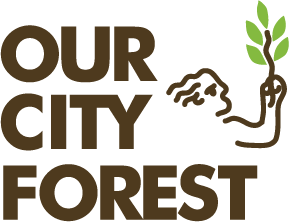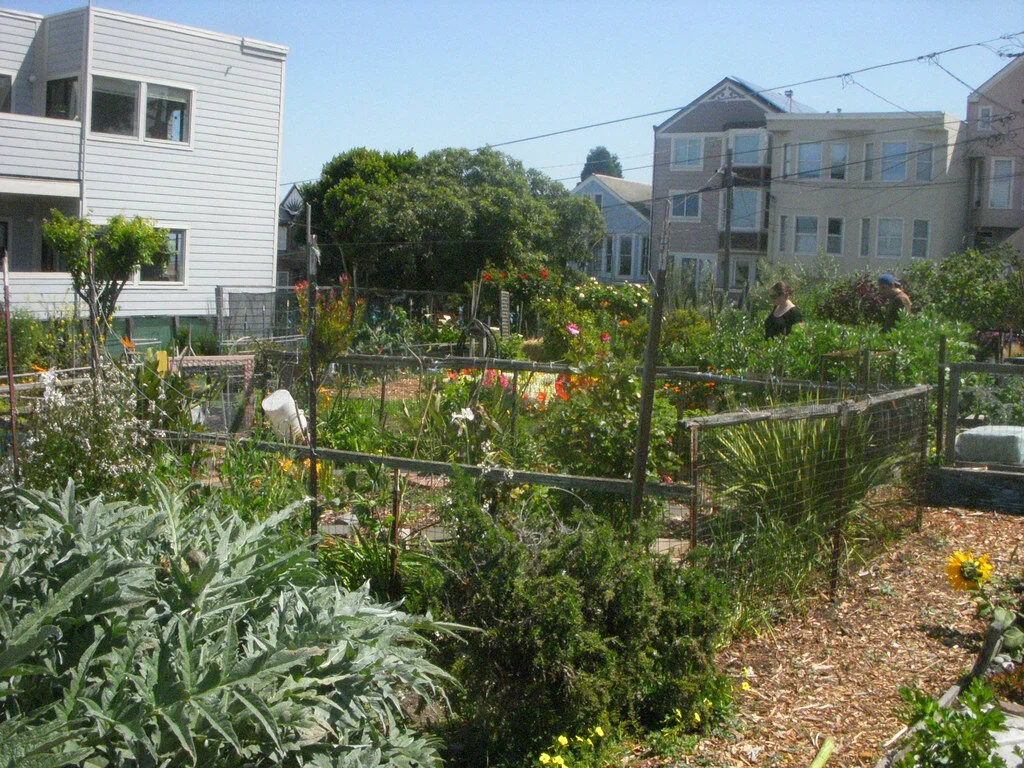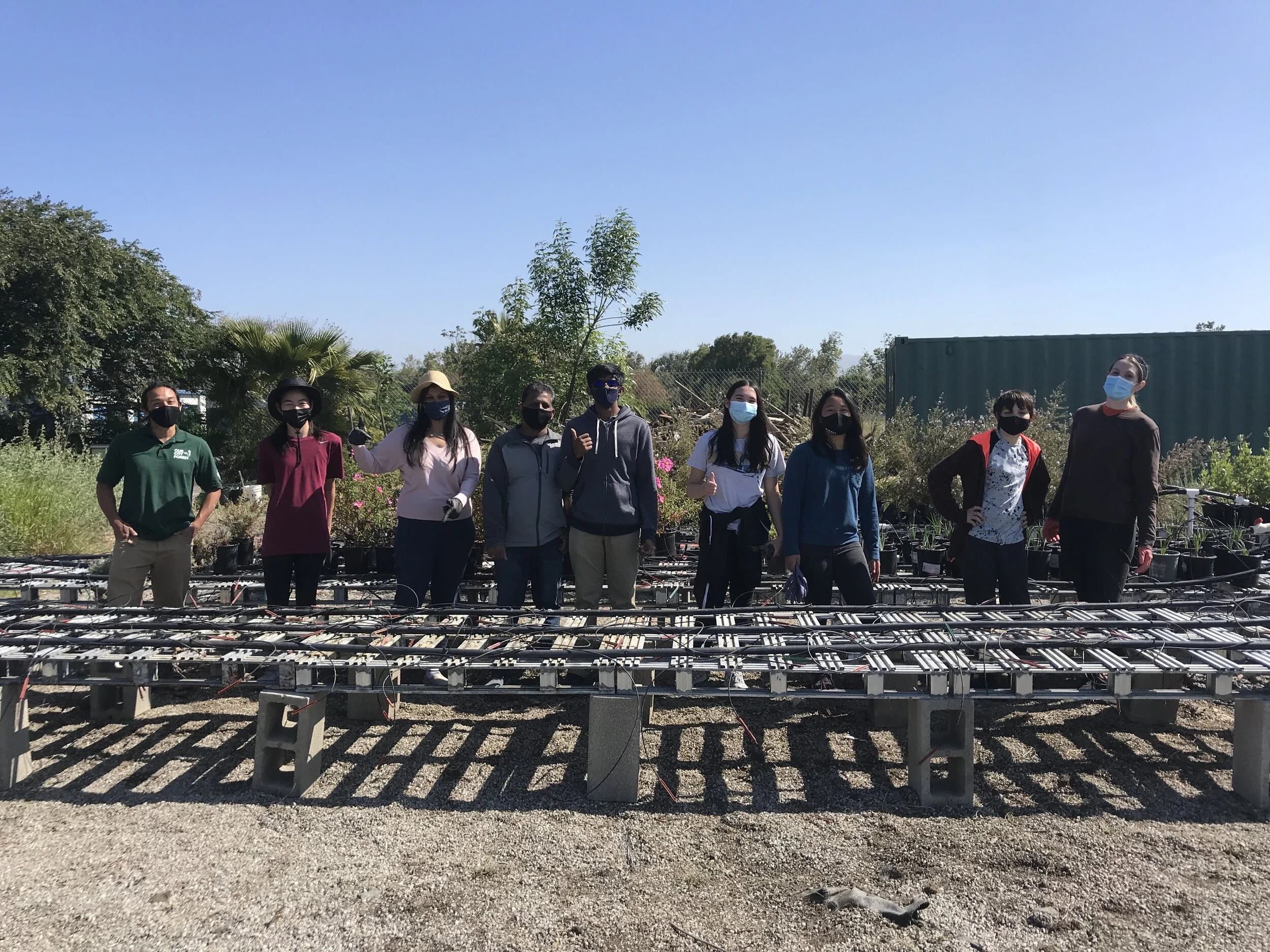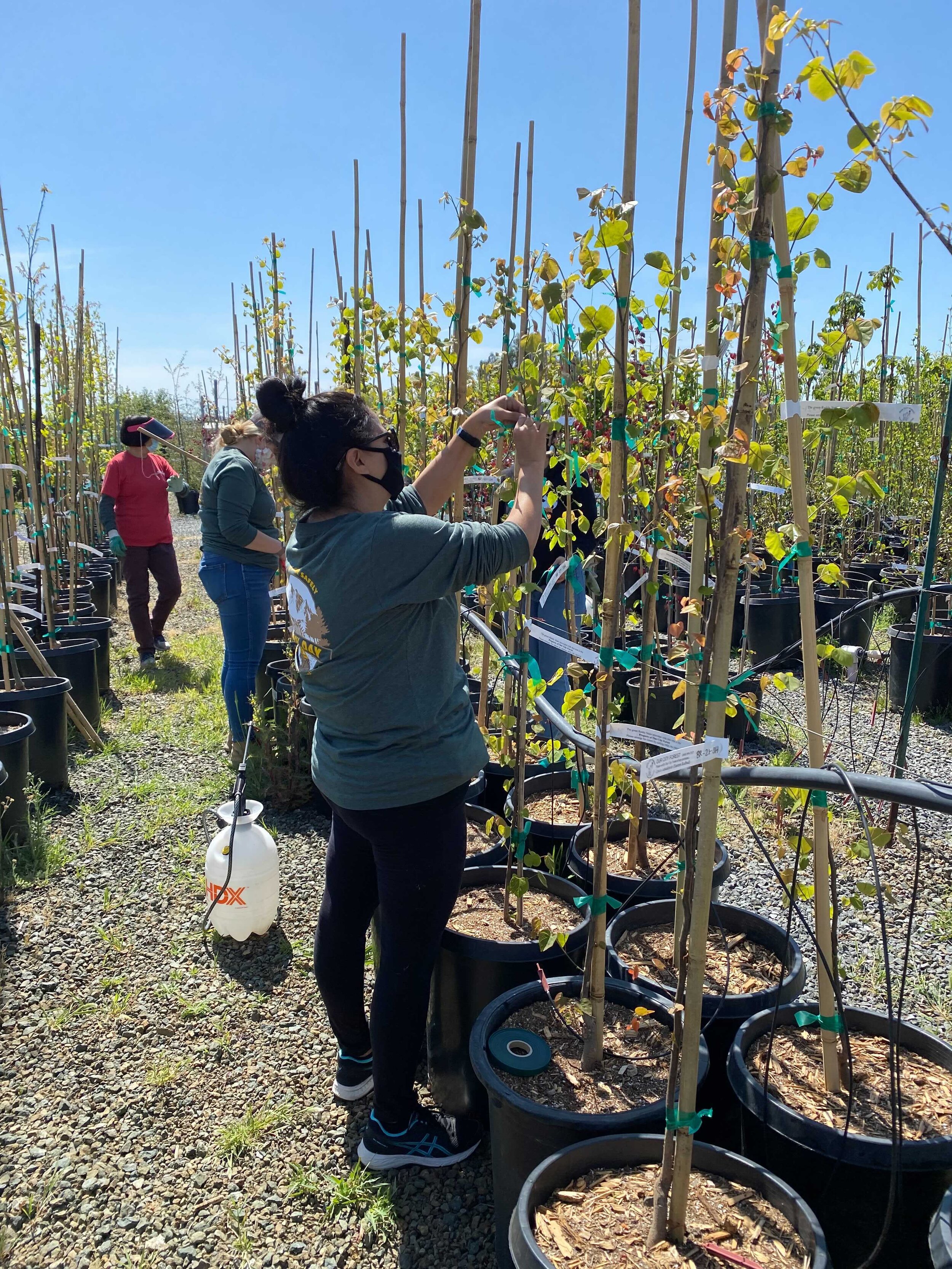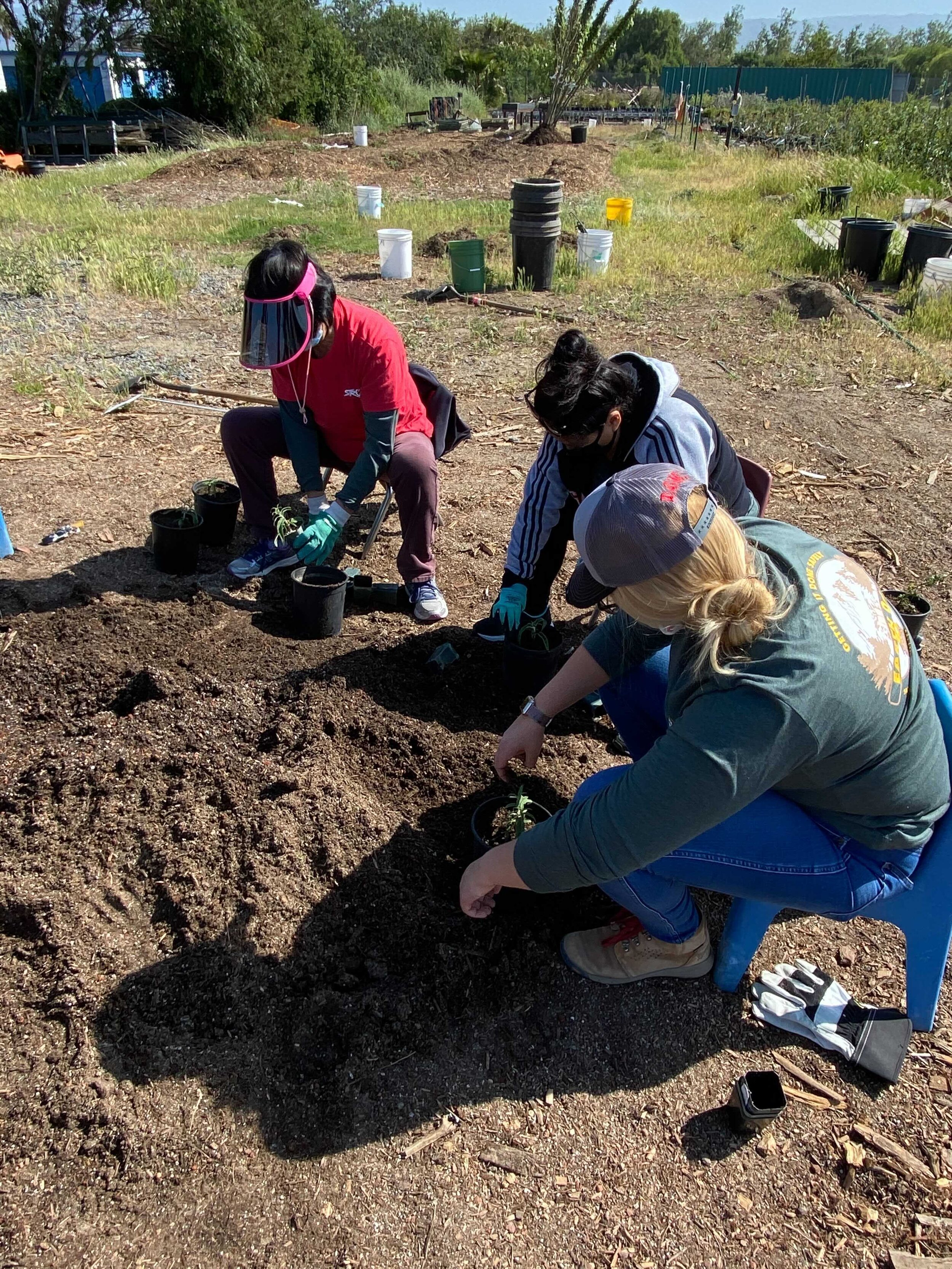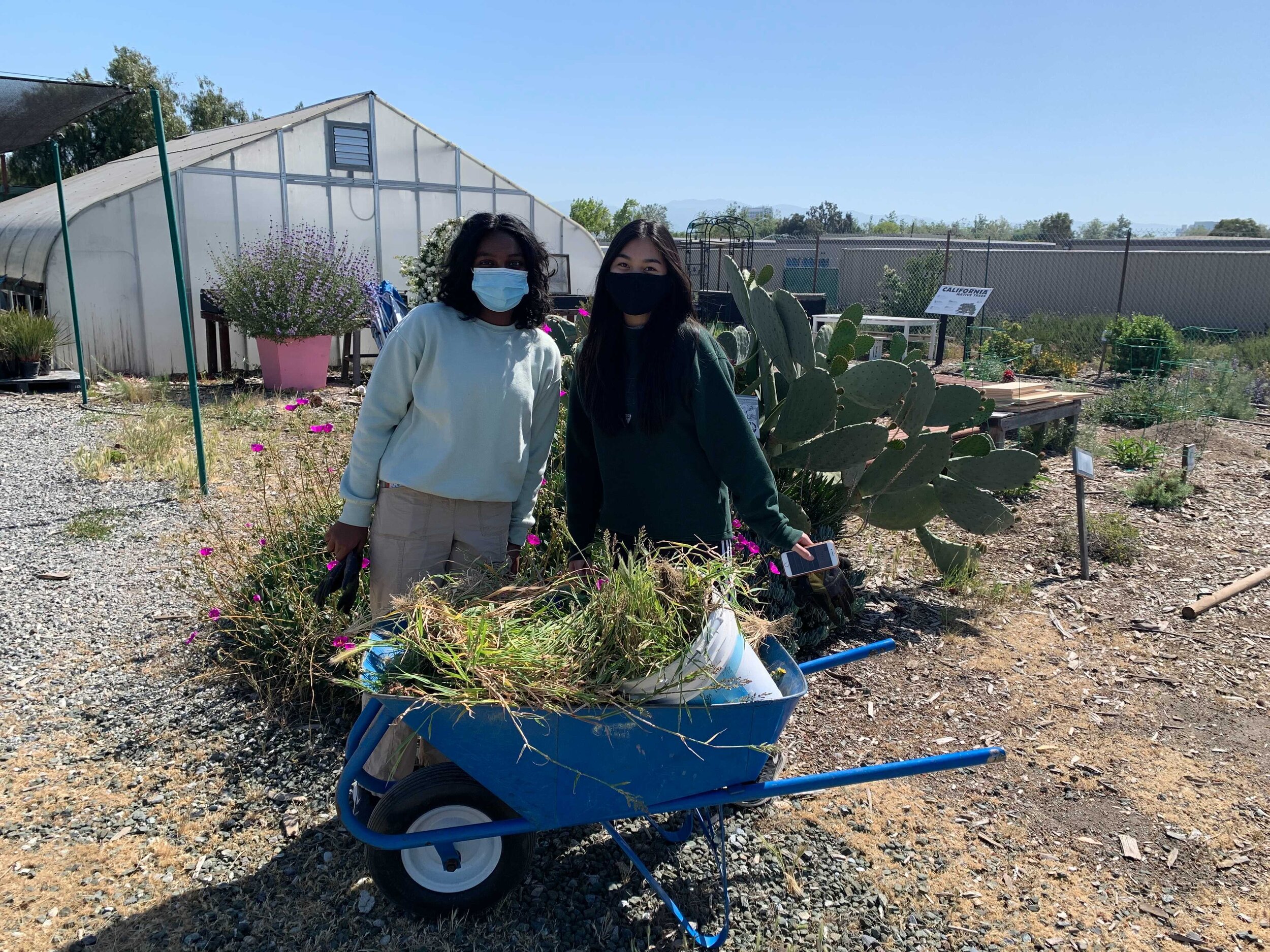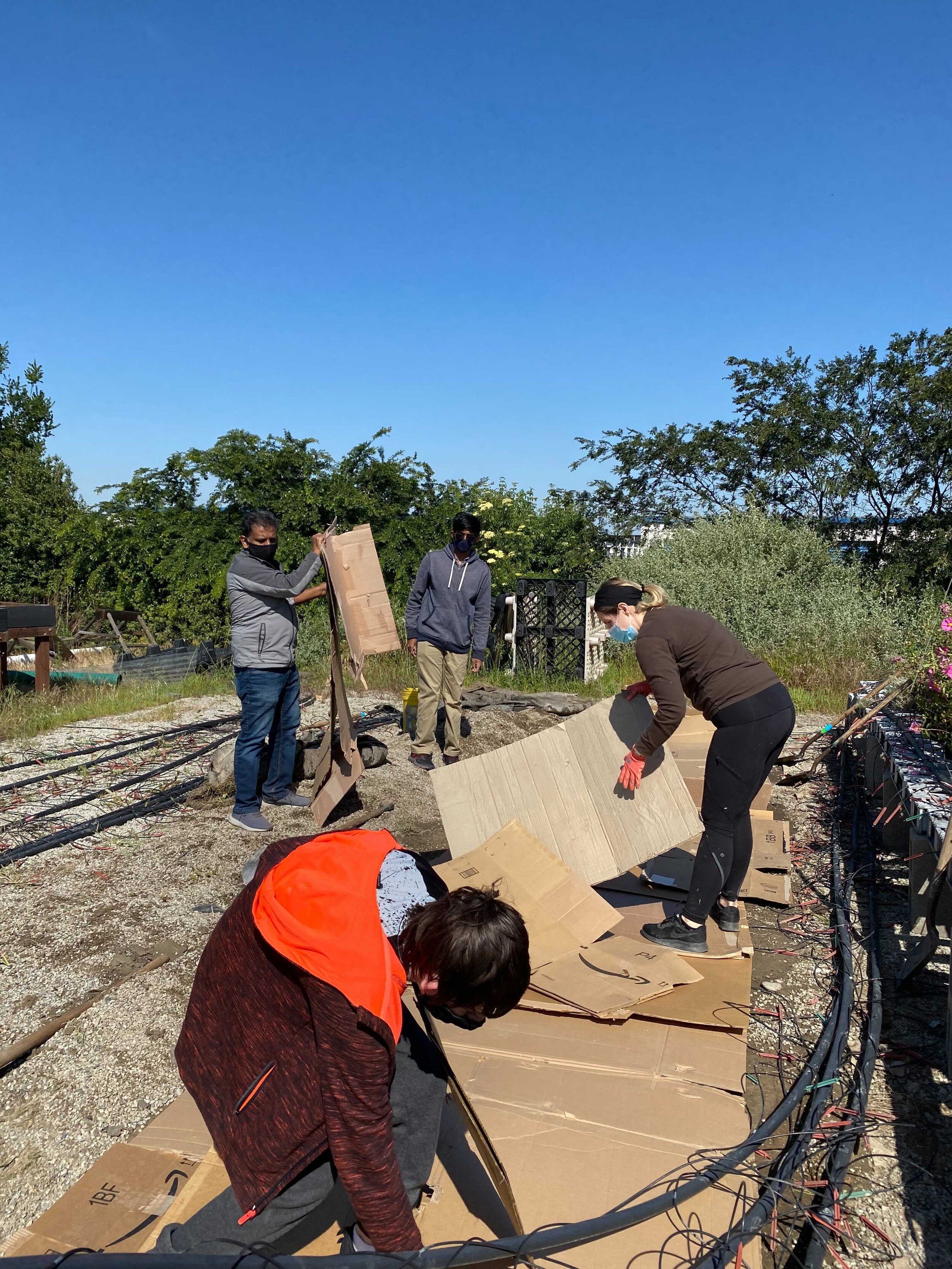Q: What Are Community Gardens?
Community gardens are a collection of planter boxes/plots where participants reserve a space within the gardens to grow a variety of fruits, vegetables, and flowers. The rules vary from garden to garden; for example, some are maintained by volunteers or members of an organization, who assist with watering, weeding and maintaining the gardens. Others are managed by the individuals who rent out a section of the garden and are then responsible for cultivating, maintaining, and harvesting from their plots. Community gardens are typically found in urban spaces, and act as beautiful, safe and peaceful oases that are open to everyone.
Berryessa Community Garden, San Jose, CA
Q: How Do Community Gardens Work?
The City of San Jose is currently home to 17 community gardens that are managed by the Parks, Recreation and Neighborhood Services Department under the Community Gardens Program. Their goal is to ensure that the gardens are safe, pleasant places for both the gardeners and the general public, that there be fairness and equity among gardeners, protection against damage to the land and the groundwater, and ensure the future of community gardens in San Jose are protected. Anyone 18+ may rent a garden plot, but each resident may only have one garden plot. The annual fees vary from garden to garden, therefore it’s best to research the garden you’re interested in to find an accurate and up-to-date account of pricing. All community gardens in San Jose adhere to strict organic gardening principles which means the use of pesticides, herbicides, chemical fertilizers or other such substances are prohibited. The “City of San Jose Community Garden Rules and Regulations” contains all the relevant information regarding community garden usage and is worth reading if you’re interested in renting a plot.
Q: What Are The Benefits Of Community Gardens?
Produces healthy fruits and vegetables: Many urban areas contain zones called “food deserts”, or areas that lack access to affordable fresh fruits, vegetables, grains, and other foods that make up a healthy diet. Community gardens can provide the fresh, nutritious produce that these neighborhoods are lacking or that residents can’t afford. Excess food from community gardens are typically donated to local food pantries, relieving hunger and increasing food accessibility for those that desperately need it.
Beautifies vacant lots: Many community gardens sit on previously vacant lots filled with litter and debris. Community gardens turn these eyesores into lush, green oases, which improve the quality of life for everyone in the neighborhood. Community gardens have even been shown to increase property values and decrease crime rates in the surrounding area.
Field of weeds converted into the Guadalupe Community Garden, 2008 in San Jose, CA
Cleans the environment: The plants grown in a community garden absorb carbon dioxide from the atmosphere, release oxygen, and help reduce air pollution. They also absorb rainwater which reduces runoff that travels through the streets, picking up pollutants and transferring them to nearby rivers and lakes via the sewer system. Community gardens also participate in community composting where yard trimmings, such as leaves and branches, and food waste are “recycled” into nutrient-rich fertilizer for the plants.
Creates stronger communities: Community gardens are a great way to connect with neighbors and gain a sense of ownership and community spirit. They’re also a great way to educate youth on the benefits and importance of gardening and the environment that’s both fun and interactive.
Fosters a healthy lifestyle: Urban gardening is a great way to get outside and stay active. It encourages healthy eating, good habits, and physical exercise. It also provides a peaceful escape from the bustling city life which can reduce stress for residents and improve mental health.
Entrance sign for the El Jardin Community Garden, San Jose, CA
